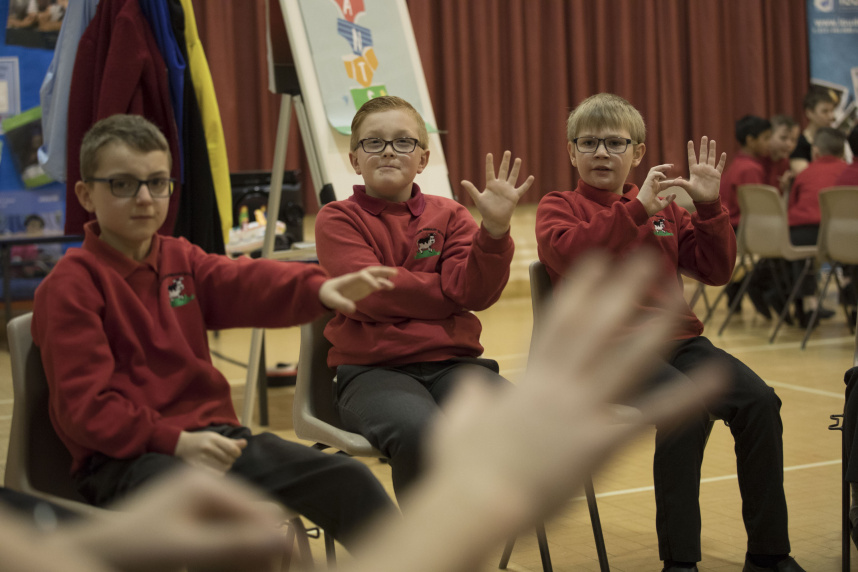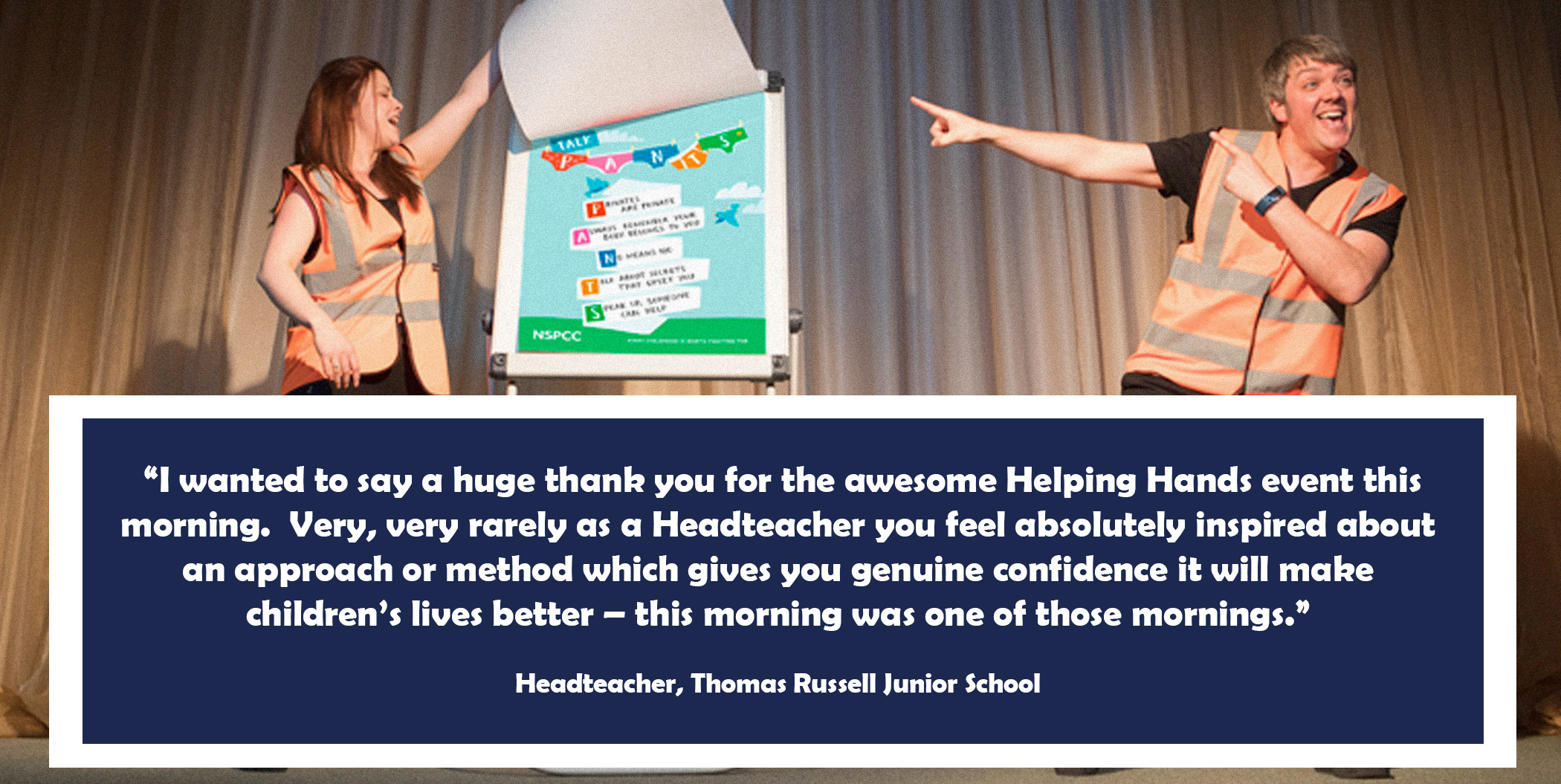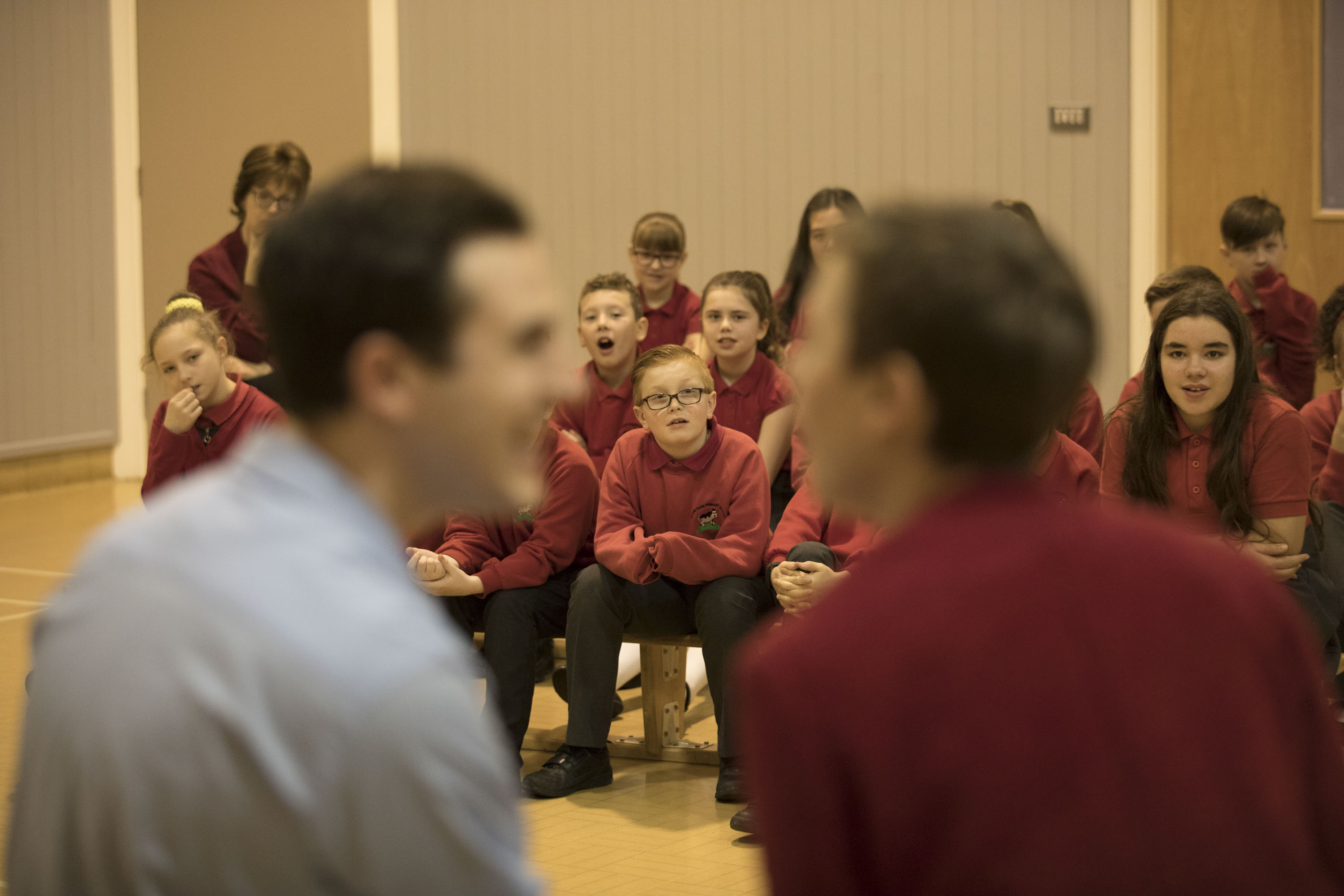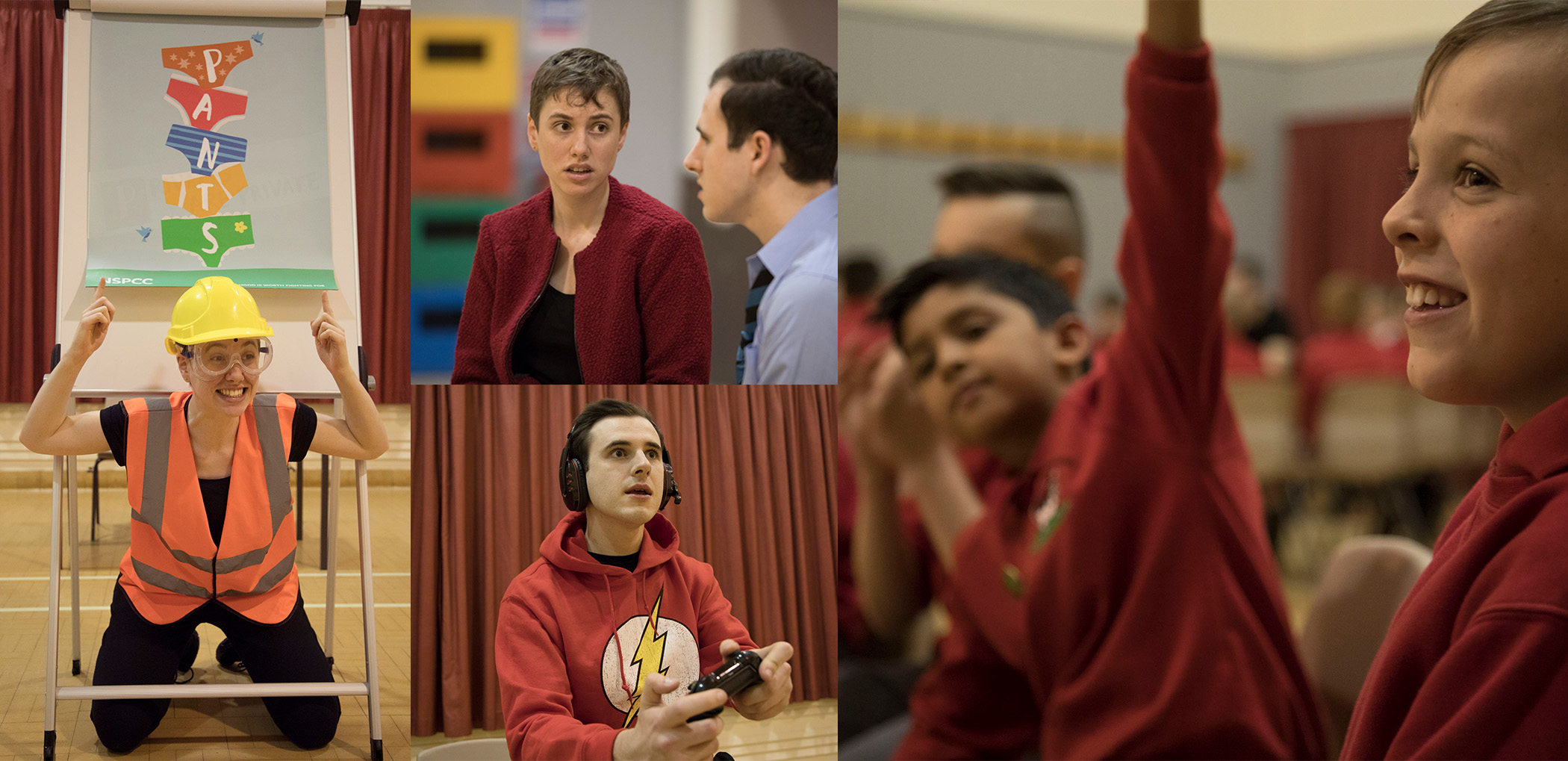
Over the last few years we have delivered more and more theatre performances and workshops on safeguarding. We have run programmes on different aspects of child safety since 1998 however only 5 ago these were rarely booked. As high profile cases of child sexual exploitation (CSE) and abuse (CSA) hit the headlines there was a sudden surge in interest. As the writer of all of Loudmouth's programmes I could feel a palpable sense of urgency to ensure that our programmes were up to date and be part of the drive to educate children and young people about staying safe.
After a big rewrite our ‘Working for Marcus’ programme for secondary schools and colleges on CSE went from being least to most popular programme and continues to be used by venues all over the UK. In 2011 we only ran a handful of Working for Marcus sessions reaching around 100 young people. In the last 12 months we have run 137 session reaching over 16,500 young people.

In 2016 we started to receive calls asking us if we did anything similar on CSE for primary schools. This was an interesting but challenging situation. I thought that this was a great opportunity to write a programme to educate children earlier however I struggled to think of a way to make complex and challenging issues accessible for younger children.
At that time we had a successful programme that was used in primary schools called Helping Hands which focussed on bullying and domestic abuse. This had been running for a few years and had been a gentle way to help children understand that abuse in adult relationships is a form of bullying. This had been a revelation in finding ways to link work schools were already doing around bullying and positive relationships to more difficult and mature issues like domestic abuse.

In Autumn 2016 we received a small amount of development funding through the Home Office through Dudley Public Health department and this allowed us to start a period of consultation with different professionals and agencies. This included surveys with teachers and safeguarding professionals including NWG, one of the country’s leading organisations working to stop CSE.
The survey showed that primary schools wanted to start discussions on safeguarding and CSE early. Most wanted something for year 5 and wanted the programme to address many different issues and risks including CSE, CSA, online safety and domestic abuse. Others asked for work that would include messages and information that they were already delivering to reinforce key ideas. These included Protective Behaviours approaches, Childline messages and the NSPCC’s PANTS rule. This used 5 different key phrases each beginning with a letter to spell the word P.A.N.T.S. to help children to remember how to stay safe.
We made the decision to use this research to redevelop our Helping Hands programme. I and other company members ran further research with children, staff, governors and parents to help build the detail of the kinds of situations that children could be unsafe. The sessions I ran with children were great fun and especially enlightening as we gained fresh insights into the worlds of gaming and social media that children spend a lot of time engaging with.
In November 2016 I rewrote Helping Hands. The research and input from the rest of the company gave me loads of material which was structured into ideas for scenes. There was a lot of new drama however I needed something that would work as a framing device to hold it all together. I had an idea for using a pair of comic characters that would appear after every few scenes. These became the ‘Safe Team’ who would explain the main concepts in a fun (and often silly way) to help bookend and soften the more dramatic, quieter or sad moments. This was helped massively by an agreement from the NSPCC that we could incorporate their PANTS rules into the programme.
The new scenes allowed me as a writer to experiment a bit with form. We played around with some of the dynamics of the comedy with the ‘Safe Team’ double act. This included making the sillier, disruptive and comic character female (something that our female Actor / Facilitators loved!) and included a short two hander scene using poetry that explored the harassment of girls in school and the role boys have to address it.

The first session of the new Helping Hands took place on the 11th January 2017. Since then to the time of writing it has been delivered 106 times reaching over 6,000 children. In most cases the programme runs with small class size groups. I think that this is where the programme really works. This format really allows our Actor / Facilitators to spend time with the class before and after the drama to help them explore the ideas raised in the play, discuss the issues and learn key terms and messages. I particularly love watching the part of the programme audiences interact and advise the characters from the drama. It is so heart warming and fulfilling to see children teach the characters what they have learned earlier in the session. It is always such an amazing feeling to witness the children teaching all of the 5 PANTS rules to a character from the drama with such authority and confidence knowing that an hour ago they had been unable to name any of them.
Helping Hands has a big focus on signposting. Childline information and messages are repeated throughout and children explore where they can go for help.

“As a result of seeing Helping Hands I know how to keep safe on the internet or in the real world. It was e-safety week last week but this helped me be aware of it the most.” Year 6 pupil
The evaluation and feedback has been amazing.
- Knowledge of the PANTS rule massively increased even in the schools where this was already being used in school. Before the Helping Hands session 0% of children could name all 5 PANTS rules (the most any child could name was 2 of the 5). After the Helping Hands session 89% could name all 5 of the rules.
- Knowledge of Childline as a place that children can go to for support or help increased from 43% to 81% as a result of the Helping Hands programme.
- 64% of the children were sure that as a result of Helping Hands they would now act or behave differently. They said they would now be more likely to help friends, talk about a worry to someone and know who to talk to, would look how to stay safer online, behave in a better manner towards others, know and remember the PANTS rule and know if they were being put in an abusive or unsafe situation.
- 100% of teaching staff rated the Helping Hands sessions ‘above average’ or ‘excellent’, with 86% stating the programme was ‘excellent’.
- 100% of staff and 99% of the children recorded that they would recommend the programme to other schools.
“It is entertaining, funny and very informative. It makes subjects that could be awkward or embarrassing to talk about much more accessible.” Year 5/6 Phase Leader
We now have 3 teams who can tour this programme as the demand is increasing all the time. For more information call us on 0121 446 4880 or visit www.loudmouth.co.uk







